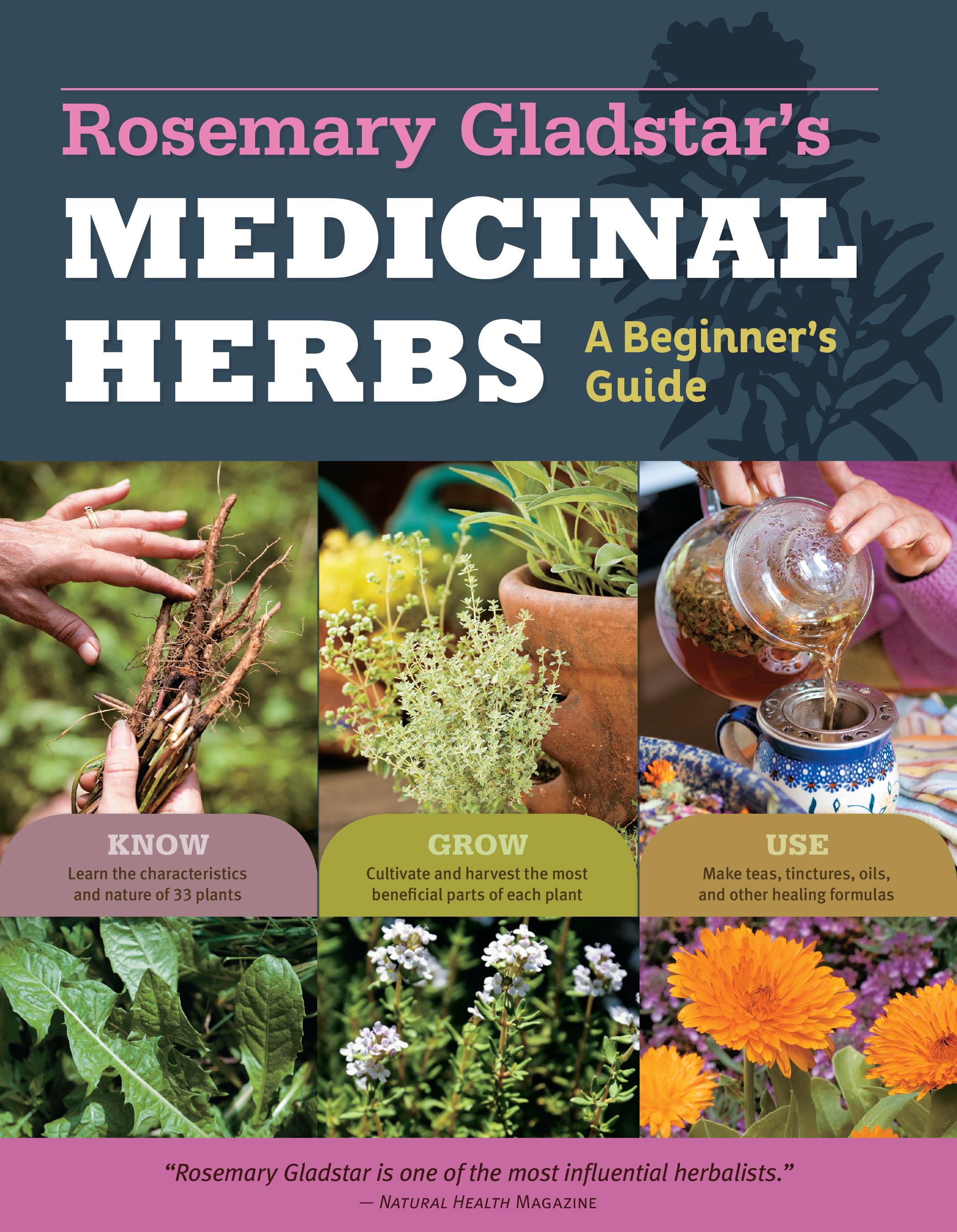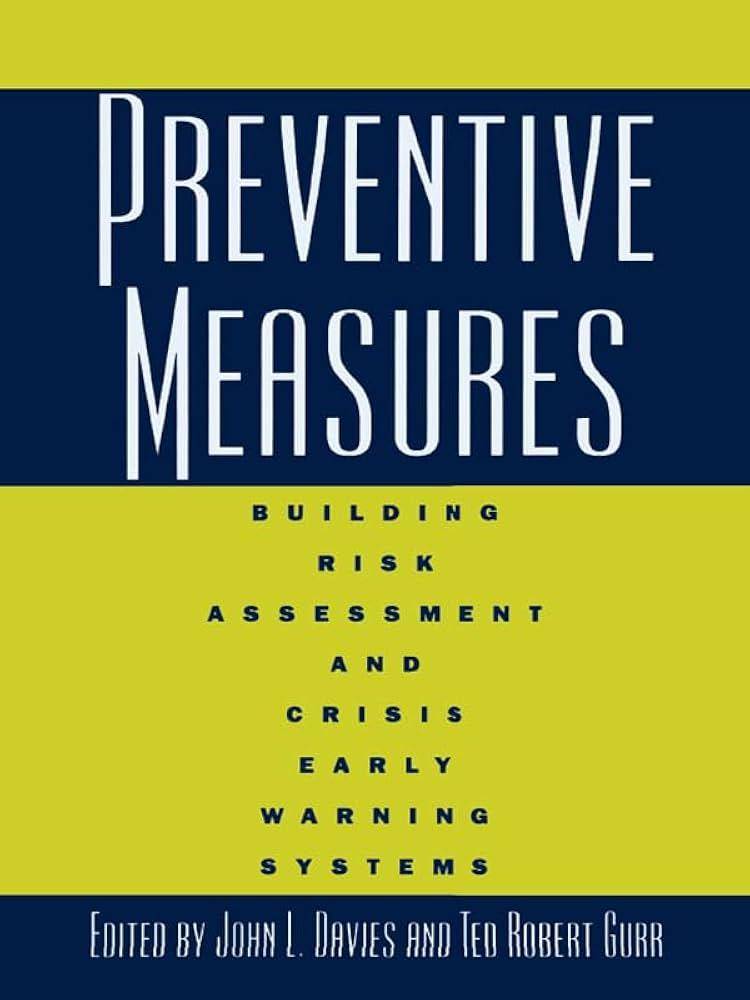In the delicate dance between nature and our bodies, allergies often step in uninvited, turning the simplest pleasures—like a blooming garden or a sunny day—into an uncomfortable experience. Millions of people find themselves battling the sneezes, itches, and rashes that come with common allergens, whether it’s pollen wafting through the air, dust mites nestled in our homes, or pet dander clinging to our clothes. While conventional medicine offers an array of treatments, many seek solace in the gentle embrace of home remedies, turning to nature’s pantry for relief. In this article, we will explore a variety of time-honored solutions and modern adaptations that can help soothe allergic responses, restore comfort, and bring balance back to your daily life—all from the tranquility of your own home. Join us as we journey through the world of natural remedies that harness the power of everyday ingredients, offering hope and relief for those facing the plight of common allergies.
Table of Contents
- Understanding allergies and Their Triggers
- The Healing Power of nature: Herbs for Allergy Relief
- Essential Oils for Soothing Symptoms
- Honey as a Natural Antihistamine
- Dietary Adjustments to Combat Allergies
- Hydration and Its Role in Allergy Management
- DIY Remedies: Simple Solutions from Your Kitchen
- Creating an Allergy-Friendly Home Environment
- When to Seek Professional Help
- Preventive measures for Long-Term Relief
- Q&A
- To Wrap It Up

Understanding Allergies and Their Triggers
Allergies are a common ailment that occur when the immune system reacts excessively to a substance, commonly known as an allergen. This immune response can lead to a range of uncomfortable symptoms including sneezing, itching, and even severe respiratory issues.Understanding the origin of these reactions is crucial for effectively managing allergies and minimizing exposure to triggers. Often, allergens are found in everyday environments, making it essential to identify them.
There are various types of allergens that can spur an allergic reaction. Some of the most prevalent include:
- Pollen: A natural trigger from trees, grasses, and weeds, particularly during certain seasons.
- Dust Mites: Microscopic organisms found in household dust that thrive in warm, humid environments.
- Pet Dander: Skin flakes from household pets such as cats and dogs, which can provoke allergies in sensitive individuals.
- Mold Spores: Fungi that produce spores found in damp areas, commonly indoors and outdoors.
- Food Allergens: Common foods like peanuts, shellfish, and dairy can trigger severe allergic reactions in some individuals.
Recognizing symptoms associated with allergies is vital for early detection and treatment.Symptoms can vary from mild to severe, impacting daily life considerably. Typical symptoms include:
| Symptom | Description |
|---|---|
| Runny Nose | Excess mucus production often resulting in congestion. |
| itchy Eyes | Irritation leading to persistent scratching or rubbing. |
| Skin Rashes | Local skin reactions like hives or eczema caused by allergens. |
| Shortness of Breath | Difficulty breathing due to airway constriction, especially in asthma sufferers. |
Environmental and genetic factors can contribute to an individual’s likelihood of developing allergies. Family history plays a notable role, as those with parents or siblings who have allergies are more prone to experiencing them themselves. Additionally, exposure to specific environmental factors like pollution, smoking, and other irritants can also enhance the risk of allergy progress, particularly in children.
With a better understanding of allergies and their triggers, individuals can take proactive steps to mitigate exposure and manage symptoms effectively.Simple measures like keeping windows closed during high pollen days, regular cleaning to reduce dust mites, and awareness of food ingredients can drastically improve quality of life for allergy sufferers. Being informed and prepared enables better responses to allergies, fostering a healthier and happier living environment.

The Healing Power of Nature: Herbs for Allergy Relief
Nature offers a bountiful array of herbs that can help alleviate allergy symptoms. These plants have been studied and utilized for centuries, showcasing their remarkable efficacy in providing relief. incorporating these herbs into your daily regimen, whether through teas, capsules, or extracts, may significantly reduce discomfort during allergy seasons.
Nettle is a powerful ally against allergies, particularly effective for hay fever. By acting as a natural antihistamine, it helps block the release of histamines that contribute to allergic reactions. You can enjoy nettle in the form of tea or capsules. Here’s a simple recipe for nettle tea:
- 1 teaspoon of dried nettle leaves
- 1 cup of boiling water
- Steep for 10 minutes, strain, and enjoy!
Butterbur is another herb celebrated for its ability to relieve nasal congestion and similar allergy symptoms. Research indicates that butterbur can be as effective as traditional antihistamines without causing drowsiness. It is indeed commonly available in tablet form. Always consult with a healthcare provider before introducing this herb, especially if you have existing health conditions or are pregnant.
Quercetin, although not an herb in the conventional sense, is a flavonoid found in various plants, including onions and apples. Its antioxidant properties work to stabilize mast cells, which release histamines during allergic reactions. For a natural boost, consider adding more quercetin-rich foods to your diet. Consider the following foods rich in quercetin:
| Food Item | Quercetin Content (mg per 100g) |
|---|---|
| Red Onions | 32 |
| Apples | 4.6 |
| Berries | 2.5 |
| Cabbage | 1.2 |
Peppermint is not just a refreshing herb; it’s also known for its decongestant properties. The menthol in peppermint can soothe irritated sinuses,allowing for easier breathing. You can brew peppermint tea or inhale steam infused with peppermint oil for immediate relief. Not only does it help relieve allergy symptoms, but it also promotes relaxation.

Essential Oils for Soothing Symptoms
Many people seek natural alternatives to alleviate allergy symptoms, and essential oils can offer a gentle, soothing solution. Utilizing these concentrated plant extracts not only creates a calming environment but may also help mitigate the discomfort caused by allergies. It’s essential to choose the right oils and apply them properly for maximum benefits.
Some of the most effective essential oils for addressing allergy symptoms include:
- Peppermint Oil: Known for its ability to open up airways and facilitate easier breathing, peppermint oil can provide instant relief from nasal congestion.
- Lavender Oil: With its calming properties, lavender oil helps reduce stress and can decrease histamine reactions, easing sneezing and itching.
- Lemon Oil: This refreshing oil has anti-inflammatory properties and can help cleanse the air of allergens while uplifting your mood.
- Eucalyptus Oil: Widely recognized for its decongestant properties, eucalyptus oil can soothe respiratory symptoms and promote clearer breathing.
- Tea Tree Oil: With its antibacterial properties, tea tree oil can help combat harmful microbes that may aggravate allergy symptoms.
To use essential oils effectively, consider creating a soothing diffuser blend. Combine a few drops of your chosen oils with water in a diffuser to fill a room with calming scents that can alleviate headaches, sneezing, and fatigue. Alternatively, dilute essential oils with a carrier oil, such as coconut or almond oil, and apply them topically to pulse points for a more direct approach.
Another method for enjoying the benefits of essential oils is through steam inhalation. Add a few drops of eucalyptus or peppermint oil to a bowl of hot water, place a towel over your head to trap the steam, and inhale deeply. This practice can provide immediate relief from sinus congestion and improve overall respiratory comfort.
| Essential Oil | Benefits | How to Use |
|---|---|---|
| Peppermint | Opens airways | Diffuse or apply topically |
| Lavender | Reduces stress | Diffuse or add to bath |
| Lemon | anti-inflammatory | Blend in cleaning spray |
| eucalyptus | Clears congestion | Steam inhalation |
| Tea Tree | antibacterial | Apply on affected area |

Honey as a Natural Antihistamine
Honey,frequently enough cherished for its sweetness and culinary flexibility,also boasts impressive medicinal properties that many may overlook. among its myriad benefits, honey stands out as a natural antihistamine, making it particularly useful for combatting seasonal allergies. When consumed, honey can help to alleviate symptoms such as sneezing, runny nose, and itchy eyes by regulating the body’s histamine response.
This natural remedy works by introducing small amounts of pollen from local flowers into the body. As you regularly consume honey, your immune system gradually becomes accustomed to these pollen particles, reducing your sensitivity over time. This process mirrors the principles behind acupuncture and other forms of immunotherapy, where exposure leads to increased tolerance.
Types of Honey Effective for Allergies:
- Local Raw Honey: This variety is harvested from local bees and contains pollen specific to your region, making it particularly effective.
- Manuka Honey: Famous for its antibacterial properties, Manuka honey also has anti-inflammatory effects that can soothe allergy symptoms.
- Wildflower honey: Gathered from various flowers, this honey can provide a broad spectrum of pollens for desensitization.
To maximize the benefits of honey as an antihistamine, consider incorporating it into your daily routine. A simple yet effective approach is to mix a tablespoon of raw honey into warm water or herbal teas. This not only enhances the drink’s flavor but also amplifies its soothing effects on your throat and nasal passages.
It’s essential, however, to use honey responsibly. Individuals with severe allergies should consult with a healthcare professional before incorporating honey into their regimen, especially those with bee or pollen allergies.Enjoying honey should be part of a holistic approach to managing allergies,which may include other natural remedies and dietary adjustments to boost overall well-being.

Dietary Adjustments to Combat Allergies
Making specific dietary changes can play a significant role in alleviating allergy symptoms. certain foods possess anti-inflammatory properties that may help reduce the severity of reactions. By focusing on a diet rich in natural, whole foods, individuals can support their immune system and perhaps lessen allergic responses. Here are effective dietary adjustments that might offer relief:
- Omega-3 Fatty Acids: Incorporate foods like salmon, flaxseeds, and walnuts to combat inflammation.
- Fruits and Vegetables: High in vitamins and antioxidants, berries, leafy greens, and citrus fruits can boost immunity.
- Probiotics: Fermented foods like yogurt, kimchi, and sauerkraut can enhance gut health and strengthen the immune system.
- Spices: Ingredients like turmeric and ginger possess natural antihistamine properties and can be easily added to meals.
It’s essential to avoid foods that might trigger allergic reactions or exacerbate symptoms. Common culprits include dairy, nuts, and gluten. Keeping a food diary can definitely help identify any negative reactions associated with specific foods. If you suspect food allergies, consider consulting with a healthcare professional to identify personalized dietary restrictions.
In addition to avoiding allergens,maintaining proper hydration is crucial. Drinking plenty of water helps to thin mucus and can flush out harmful toxins from the body. Herbal teas, especially those containing chamomile or peppermint, can relieve symptoms and also contribute to hydration. Here’s a quick look at hydrating options that may benefit allergy sufferers:
| Drink | Benefits |
|---|---|
| Water | Hydrates and flushes out allergens. |
| Pineapple Juice | Contains bromelain, which may reduce nasal swelling. |
| Green Tea | Rich in antioxidants and supports the immune system. |
| Ginger Tea | Has anti-inflammatory effects. |
Introducing food supplements designed to support immune health may also enhance the effectiveness of dietary adjustments. supplements containing vitamin C, vitamin D, and quercetin could help modulate the immune response and alleviate allergy symptoms. Though,it’s critically important to approach supplementation with caution and seek guidance before starting any new regimen.
Ultimately, a well-rounded diet tailored to individual needs can bolster the body’s defenses against allergens while promoting overall health. Regular monitoring and adjustments can make all the difference in managing allergies effectively. Engaging in mindful eating and being aware of nutritional intake empowers individuals to take charge of their health and mitigate allergy flare-ups.

Hydration and Its Role in Allergy Management
Staying well-hydrated plays a pivotal role in maintaining optimal health, especially for those managing allergies. Water serves not only as a vital nutrient but also as a natural decongestant, helping to thin mucus and clear out allergens from your system. By ensuring your body has enough fluids, you can definitely help mitigate some of the uncomfortable symptoms associated with allergies.
Dehydration can exacerbate allergy symptoms by causing your mucus membranes to dry out.This dryness makes it harder for your body to flush out irritants such as pollen and dust mites. Incorporating a variety of fluids into your daily routine can significantly improve your body’s defense mechanisms against allergens. Here are some excellent options to consider:
- Water: Aim for at least eight 8-ounce glasses a day.
- Herbal teas: Options like chamomile or peppermint can also provide soothing benefits.
- Broths and soups: Nutritious and hydrating, perfect for combating symptoms.
- Fruits and vegetables: High-water content produce, such as cucumbers and oranges, can enhance hydration levels.
Additionally, while consuming beverages, pay attention to those with high sugar or caffeine content, as thay may lead to dehydration. instead, prioritize items that offer not just hydration, but also additional health benefits. As a notable exmaple, herbal teas can reduce inflammation, while some fruit juices may provide necessary vitamins that bolster your immune system.
It’s also critically important to note that the effectiveness of hydration can be amplified by its timing. Drinking fluids at the right moments can help ease allergy symptoms. Here’s a quick guide:
| Timing | Benefit |
|---|---|
| Upon waking | hydrates after a night of sleep, combating morning allergy symptoms. |
| Before meals | Helps digestion and prepares your body to process food allergens more effectively. |
| During allergy season | Increases mucus production, helping to flush out irritants. |
| Before sleep | Maintains hydration throughout the night, supporting overall respiratory health. |
making a conscious effort to remain hydrated can significantly aid in managing allergy symptoms. By integrating more fluids into your diet and paying attention to when you consume them, you can enjoy a greater quality of life, especially during peak allergy seasons. So, grab a glass of water, indulge in herbal infusions, and let hydration work its magic on your allergy management journey!

DIY Remedies: Simple Solutions from Your Kitchen
Many of us find ourselves battling allergies, especially during certain seasons. Fortunately, your kitchen might hold the keys to relief. By utilizing common ingredients, you can create effective and natural remedies to alleviate symptoms.Here are some notable options that are both easy to make and potent in relieving discomfort.
Organic Honey has been revered not just for its sweetness but also for its potential to alleviate allergy symptoms. When taken regularly, it can help your body adjust to local pollen. Simply consume a teaspoon of raw, organic honey daily to potentially reduce your body’s histamine responses. For an extra kick, try mixing it with a drop of lemon juice for added benefits.
Ginger Tea is another fantastic remedy due to its natural anti-inflammatory properties. Brew a cup by boiling fresh ginger slices in water for about 10 minutes. You can add a bit of honey or lemon for taste. This aromatic beverage not only helps to soothe your throat but may also work to unblock your sinuses, allowing for easier breathing during allergy season.
Apple Cider Vinegar is widely known for its multiple health benefits, including allergy relief. Mix one tablespoon of apple cider vinegar in a glass of water, and drink it daily. Its acetic acid content can help reduce mucus production, clear sinus congestion, and support your immune system. You can also use it as a salad dressing to make the remedy more enjoyable.
| Ingredient | Benefits | Usage |
|---|---|---|
| Honey | Reduces histamine responses | 1 tsp daily |
| Ginger | Anti-inflammatory | ginger tea |
| Apple Cider Vinegar | Reduces mucus production | 1 tbsp in water daily |
Lastly, don’t underestimate the power of Turmeric. This bright yellow spice contains curcumin, which has potent anti-inflammatory properties. Adding turmeric to your meals or mixing it with warm milk to create a soothing drink can help your body combat allergy-related symptoms. Just a pinch daily could make a notable difference in how you feel!

Creating an Allergy-friendly Home Environment
Transforming your home into an allergy-friendly oasis involves implementing simple yet effective strategies. one key element is to ensure optimal air quality. Regularly changing your home’s air filters can significantly reduce allergens such as dust and pollen that accumulate in the air. Aim to use HEPA filters, which are highly effective in trapping small particles, promoting a cleaner breathing environment for you and your family.
another effective strategy is to minimize clutter in your living space. Clutter not only collects dust but also becomes a breeding ground for allergens like pet dander and mold. By organizing your belongings and choosing decorative items that are easy to clean, you can simplify your cleaning routine. Consider these tips:
- Use enclosed storage bins for toys and books.
- Opt for washable curtains rather of heavy drapes.
- Favor bare floors or area rugs rather of carpets.
Pest management is another crucial component of an allergy-friendly home. Common household pests such as cockroaches and rodents can release allergens into the air. To safeguard your home, it’s important to seal any cracks or openings where pests might enter and to maintain a clean environment. Establishing a regular cleaning schedule can further help in controlling any pest populations.
Another important aspect to consider is your home’s humidity levels. High humidity can promote the growth of mold and dust mites, both of which are common allergens. Using a dehumidifier can help maintain a balanced level of humidity, ideally between 30-50%. If you’re curious about how humidity affects your home, refer to the table below:
| Humidity Level | Effect on Allergens |
|---|---|
| Below 30% | Dry air can irritate nasal passages. |
| 30% – 50% | Ideal for reducing allergens. |
| Above 50% | Increased mold and dust mite growth. |
integrating natural cleaning products can further enhance your allergy-friendly environment. Many conventional cleaning supplies contain harsh chemicals that can trigger sensitivities. Consider using alternatives such as vinegar, baking soda, and essential oils. Not only are these options more environmentally friendly, but they also effectively disinfect and freshen your home without the risk of irritating your allergies. By adopting these practices, you can create a safe haven that nourishes health and well-being.

When to Seek Professional Help
While home remedies can be effective for managing mild allergic reactions, there are instances when it’s essential to turn to professional medical assistance. Recognizing these situations can protect your health and help you navigate your allergies more effectively.
Consider seeking help if you experience:
- severe symptoms, such as difficulty breathing or wheezing
- Swelling of the face, lips, or throat
- Persistent or worsening symptoms that don’t improve with home remedies
- Reactions triggered by unknown substances or after exposure to specific allergens
- Anaphylaxis, which requires immediate emergency intervention
Another consideration for professional help is the frequency and context of your allergic reactions. If you find that your allergies are impacting your daily life—such as affecting your job performance or social interactions—consulting an allergist may provide insights and tailored strategies for management. Documenting your symptoms and their triggers can also be helpful when discussing your condition with a healthcare provider.
Critically important factors that signal the need for professional assessment include:
| Factor | Significance |
|---|---|
| Age of Onset | New allergies in adults may warrant further investigation |
| Family History | Genetic predispositions to allergies can influence treatment |
| Response to Over-the-Counter Medications | Lack of improvement suggests a possible need for stronger treatment |
In addition, individuals with existing health conditions, such as asthma or autoimmune disorders, should promptly seek guidance if they notice changes in their allergy symptoms. Coexisting health issues can complicate allergies and may necessitate modified treatment approaches. A healthcare professional can conduct the necessary assessments and recommend a complete management plan that considers all aspects of your health.
Ultimately, trusting your instincts is crucial. if something feels off or if the home remedies fail to provide relief, don’t hesitate to reach out for professional help. Early intervention can lead to a better quality of life and help you reclaim control over your allergy symptoms.

Preventive Measures for Long-Term Relief
To cultivate a healthier environment and minimize the risk of allergy flare-ups, implementing preventive measures is essential. One of the most effective strategies is to maintain a clean living space. Regularly dusting surfaces, vacuuming carpets, and washing bedding in hot water can significantly reduce allergens such as dust mites and pet dander. In addition, consider employing air purifiers equipped with HEPA filters to capture airborne particles.
Another crucial step is being mindful of the foods you consume. Certain foods can trigger allergic reactions, so it’s beneficial to identify and eliminate them from your diet. Incorporating anti-inflammatory foods—like fish, leafy greens, and nuts—can help strengthen your immune system. Keeping a food diary can also assist in tracking any reactions you may have, helping you pinpoint problem areas more easily.
Keeping track of local pollen counts can help manage outdoor exposure during allergy seasons. Avoid venturing outside during peak pollen times, typically early mornings or windy days. When you do go outdoors, wearing a mask can further restrict pollen inhalation.After outdoor activities, changing clothes and showering can help remove allergens that may have settled on your skin or hair.
Hydration plays a vital role in long-term allergy management as well. Drinking plenty of water can definitely help thin mucus secretions, making it easier for your body to expel allergens.herbal teas,particularly those made from ginger or peppermint,can soothe and provide additional relief from symptoms. Always remember to discuss excessive symptoms with healthcare professionals immediately.
exploring natural remedies may offer additional support. Essential oils like lavender and eucalyptus can promote a calming environment, while apple cider vinegar has properties that may help alleviate congestion. Consider creating a daily routine that incorporates practices such as these to bolster your defenses against allergies and promote overall wellness.
Q&A
Q&A: Home Remedies for Common Allergies
Q1: What are some common allergies people experience?
A1: Common allergies include pollen allergies (hay fever), dust mite allergies, pet dander allergies, mold allergies, and certain food allergies. These can lead to symptoms such as sneezing, runny nose, itchy eyes, and skin rashes.
Q2: How can home remedies help manage allergy symptoms?
A2: Home remedies can provide relief from mild allergy symptoms by using common household items that possess soothing or anti-inflammatory properties.They often come with fewer side effects than over-the-counter medications, making them a preferable choice for many.
Q3: what simple remedies can alleviate pollen allergies?
A3: A saline nasal rinse can definitely help clear pollen from nasal passages. using a mixture of warm water and salt, you can gently flush out allergens. Staying indoors during high pollen days and showering after outdoor activities also aids in reducing pollen exposure.
Q4: How can I combat dust mite allergies using home remedies?
A4: Keeping your home clean is crucial. Regular vacuuming with a HEPA filter and washing bedding in hot water can significantly reduce dust mites. You might also consider using essential oils like eucalyptus or tea tree oil, which can be added to cleaning solutions for an extra boost against allergens.
Q5: Are there natural solutions for managing pet dander allergies?
A5: Regular grooming of pets can minimize dander; consider bathing them weekly with a hypoallergenic shampoo. Additionally,creating “pet-free” zones in your home,such as the bedroom,and using air purifiers can definitely help reduce exposure to dander.
Q6: Can herbs or teas provide relief from allergy symptoms?
A6: Absolutely! Herbal teas made from ingredients like peppermint, ginger, or chamomile can soothe the throat and reduce inflammation. Additionally, nettle leaf has natural antihistamine properties, making it a popular choice for allergy relief.
Q7: What dietary changes can definitely help alleviate allergy symptoms?
A7: Incorporating anti-inflammatory foods into your diet can be beneficial. Foods rich in omega-3 fatty acids (like salmon and flaxseeds) and antioxidants (like berries and leafy greens) may help bolster your immune response and reduce symptoms.
Q8: Are there any precautions I should take when using home remedies?
A8: While home remedies can be effective, it’s essential to know your body and how it reacts. Always perform a patch test for topical remedies to check for allergic reactions, and consult with healthcare professionals if you have severe allergies or existing medical conditions.
Q9: When should someone seek professional help for their allergies?
A9: If allergy symptoms persist despite home remedies, or if they escalate to severe reactions such as difficulty breathing, swelling, or anaphylaxis, it’s crucial to seek professional medical attention immediately. Always prioritize your health and safety.
Q10: Can lifestyle changes play a role in allergy management?
A10: Indeed, lifestyle changes such as maintaining a clean environment, utilizing air purifiers, and minimizing exposure to known allergens can make a significant difference. Additionally, staying hydrated and managing stress levels can improve your overall resilience against allergens.
Incorporating these home remedies into your routine may offer a gentle, natural approach to managing common allergies, granting you relief and control in the face of allergens.
To Wrap It Up
As the seasons change and nature awakens, many find themselves battling the unwelcome effects of allergies. While over-the-counter medications have their place,the allure of home remedies offers a gentle,holistic approach to alleviating discomfort. From soothing herbal teas to the calming properties of honey, these time-honored solutions not only provide relief but also encourage mindfulness in caring for our bodies.
Remember, finding what works best for you may take some experimentation, so don’t hesitate to listen to your body and adapt these remedies to suit your needs. By embracing the natural offerings around us, we can harmonize with the environment while combatting the irritation of allergies. So, breathe deeply, explore these remedies, and reclaim the joy of each season, free from the shackles of allergy symptoms. Your journey towards comfort and relief is just beginning—may it be as enlightening as it is soothing.


